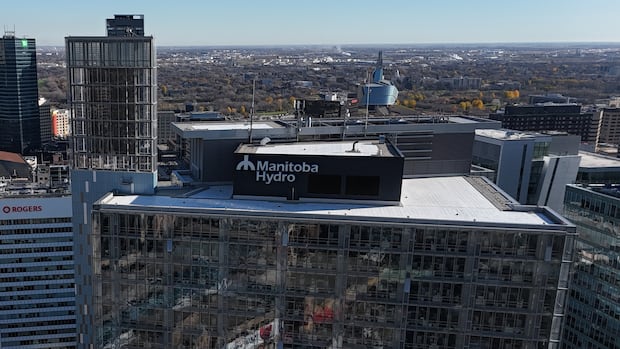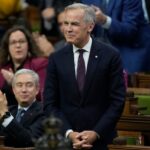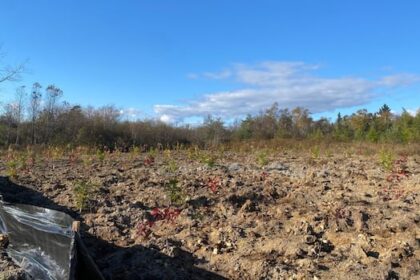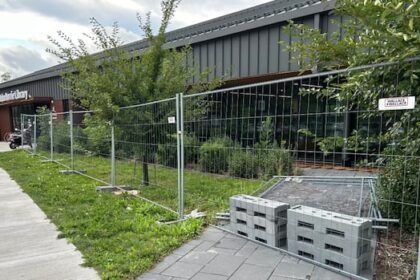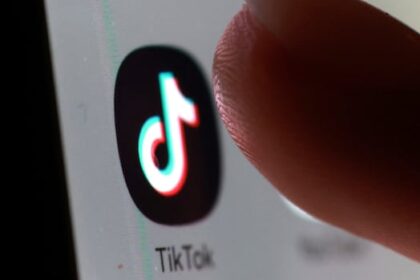ManitobaA coalition made up of several local non-profit organizations says it’s opposing Manitoba Hydro’s proposed rate hike in public hearings that began this week.Hike needed due to low water conditions, aging infrastructure, and expected capacity shortfall: HydroCBC News · Posted: Nov 17, 2025 6:19 PM EST | Last Updated: 3 hours agoListen to this articleEstimated 5 minutesThe audio version of this article is generated by text-to-speech, a technology based on artificial intelligence.Manitoba Hydro’s request for three annual rate hikes of 3.5 per cent starting in 2026 is being considered in public hearings that began Monday. (Trevor Brine/CBC)A coalition made up of several local non-profit organizations says it’s opposing Manitoba Hydro’s proposed rate hike in public hearings that began this week.The independent Public Utilities Board began hearing arguments Monday into a review of Manitoba Hydro’s three annual rate hikes of 3.5 per cent that it requested starting in 2026.The Consumers Coalition, which represents a quartet of non-profit organizations, says the proposed hike is “higher than necessary” and is arguing against it during the hearings.The coalition is made up of Manitoba Harvest, the Aboriginal Centre of Winnipeg, the Manitoba branch of the Consumers Association of Canada, and the Manitoba Seniors Equity Action Coalition.Katrine Dilay, a lawyer who represents the coalition, says the group believes the proposed rate increases would be “unnecessarily hard for many Manitobans to bear,” and that the Crown corporation has not justified its request for the rate hike.Under the proposed hike, a customer who heats their home with 1,000 kWh of natural gas per month would see their Hydro bill jump by about $137 per year by 2028, Dilay said, while a customer who uses 2,000 kWh of electric heat a month would see their bill jump by $362 a year.Dilay said the proposed rate hike would hit low-income and First Nations households the hardest.”When we talk about ‘energy poverty,’ often the literature refers to folks who are spending more than 10 per cent of their household income on electricity. Currently approximately 4.3 per cent of Manitobans spend that,” she said.”But that really hides who is disproportionately impacted by that, and that includes low-income households and First Nations households in particular, where that number of households who spend more than 10 per cent of their household income on electricity is almost 40 per cent.”Katrine Dilay, a lawyer for the Consumers Coalition, said she would prefer to see the independent Public Utilities Board make decision about Manitoba Hydro rates. (Zoom)Manitoba Hydro spokesperson Peter Chura says the proposed rate hike would allow the corporation to meet its mandate to provide safe, reliable and affordable energy while also meeting the future energy needs of Manitobans.Low water conditions have reduced Hydro’s revenues in four of the past five years, he said, adding that major investments are needed to upgrade or replace aging infrastructure and to develop new resources to meet an expected shortfall of capacity.”Manitoba will continue to have the second-lowest residential rates, and among the lowest commercial and industrial rates compared to other major Canadian utilities, even with the proposed rate increases,” Chura said in an emailed statement on Monday.’Hydro is a monopoly’Dilay says the coalition alleges the Crown corporation is “overstating” its financial need with exaggerated claims of needs for infrastructure renewal and debt impacts.The coalition also believes Hydro’s operating and administrative costs are growing at an unsustainable rate, and lacks “an evidence-based asset management plan.”Dilay said the coalition favours the independent rate-setting process operated by the Public Utilities Board that ensures electricity rates are based on evidence, rather than political considerations.”Hydro is a monopoly, and so it’s even more important that Manitoba Hydro be held accountable to its customers.”The Public Utilities Board is the third-party watchdog that approves electricity rates through public hearings.In its application to the Public Utilities Board earlier this year, Hydro said it must spend $31 billion over the next two decades to improve the reliability of its existing infrastructure and expand its capacity to generate electricity.Some of the infrastructure along Bipole I and Bipole II — two of Hydro’s three main transmission lines — is over 50 years old, which is 10 to 30 years beyond “the industry expected service life,” and will require billions worth of upgrades in the coming decades, Hydro said.Hydro also said it must increase its generating capacity by 2030 to avoid electrical-capacity shortfalls during peak-use periods in the winter. Last winter, Hydro notified the Public Utilities Board of its intention to build a pair of new fuel-combustion turbines at a cost of $1.4 billion to meet this demand.Hydro warned in its rate application that it may need to build more gas turbines from 2035 to 2045, despite a previous provincial NDP directive to stop burning fuel to create electricity by 2035 — a goal Premier Wab Kinew suggested in April may not be attainable after all.The public hearings are scheduled to continue until Dec. 22, with a decision expected in early 2026, Dilay said.
Wednesday, 4 Mar 2026
Canada – The Illusion
Search
Have an existing account?
Sign In
© 2022 Foxiz News Network. Ruby Design Company. All Rights Reserved.
You May also Like
- More News:
- history
- Standing Bear Network
- John Gonzalez
- ᐊᔭᐦᑊ ayahp — It happened
- Creation
- Beneath the Water
- Olympic gold medal
- Jim Thorpe
- type O blood
- the bringer of life
- Raven
- Wás’agi
- NoiseCat
- 'Sugarcane'
- The rivers still sing
- ᑲᓂᐸᐏᐟ ᒪᐢᑿ
- ᐅᑳᐤ okâw — We remember
- ᐊᓂᓈᐯᐃᐧᐣ aninâpêwin — Truth
- This is what it means to be human.
- Nokoma


